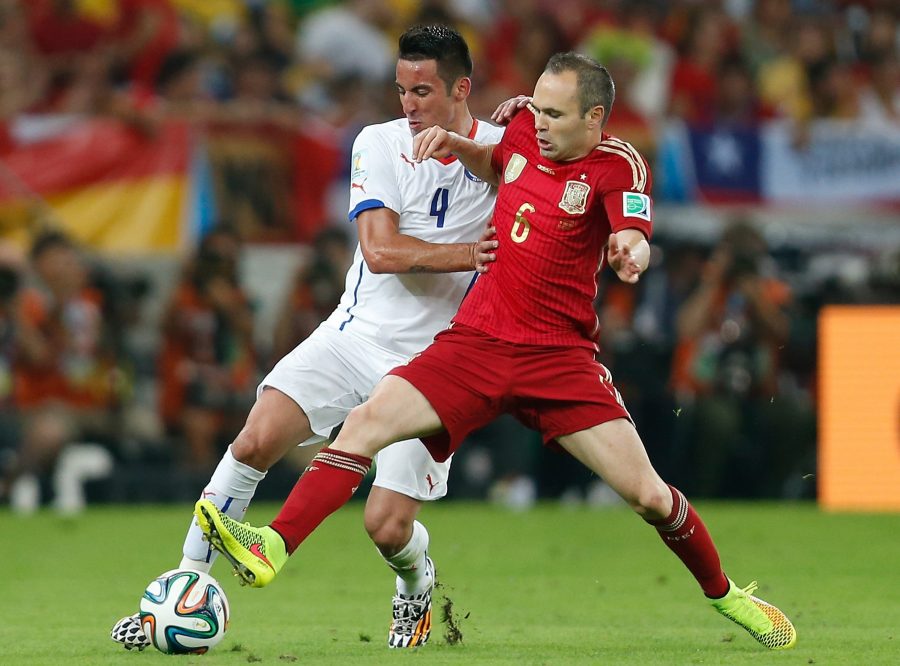In truth, I can only readily remember three instances of such epoch-expiration in my sports-watching lifetime.
First, the retirement of Chipper Jones, which strangely seemed to mark the end of an era in my own life as well. As high school ended, so did the hall-of-fame career of one of my boyhood idols: the baseball player I wanted to be over any other when I was the age when many boys aspired to be a baseball player.
Second, the trade of Kevin Garnett and Paul Pierce from the Boston Celtics to the Brooklyn Nets. I don’t think I’ll ever forget watching the news of that trade break on the TV.
Third, and most recently, the fall and embarrassment of the Spanish National Team at the 2014 World Cup in Brazil. The Spaniards, thought to be favorites of the tournament, the of verve passion, were destroyed by the Dutch and chastised by the Chileans, sent packing from the World Cup that was to be the indubitable establishment of “La Roja” as the greatest national team in the ?history of the game.
The Spaniards only narrowly edged Australia by their lofty standards, beating the worst team in the tournament 2-0 in a match of no consequence. Everyone is ready to declare the death of “tiki-taka” the patented model of Spanish? football based on short, incisive passes, perpetual ?possession and beautiful movement.
But tiki-taka is more than the Spaniards, more than a system of play and more, even, than a philosophical ideal. Tiki-taka was, and is, the logical succession of the evolution of soccer from the days of the old English game to the modern-day Beautiful Game.
Tiki-Taka is the descendent of the “Total Football” system of the great Netherlands teams of the 1970s.
“La Roja” has every right to claim to be the greatest national team of all time. Consecutive European Championships interrupted only by the nation’s first ever World Cup cannot be discounted. Above all, the epoch of Spanish soccer must, and will be, remembered fondly as the closest thing to perfect soccer that we ever thought we’d see.









